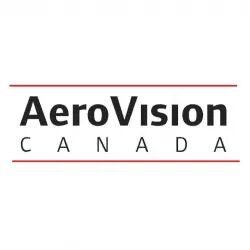
In Canada, as in the US, commercial operators are required to have their drones in sight at all times. While for some applications the restriction does not cause a problem – aerial photography of a building or a small area, for example – the rule complicates many industrial applications of commercial drones, such as the inspection services of energy pipelines or long coastal regions that AeroVision specializes in.
Currently, the company must place personnel at points all along the path that the drone will take. AeroVision’s CEO, Trevor Bergmann, tell the Chronicle Herald in Canada that having personnel watch the drone is unnecessary when the precise location of sophisticated commercial drones can be monitored at all times. The company uses the DJI S1000 Plus, with a Sony A7R camera and thermal imaging capability. In an interview with the Chronicle Herald Bergmann estimated that a waiver allowing BVLOS flight would mean a five to tenfold increase in revenues for the company.
AeroVision expects a decision from Transport Canada within the next 60 days.
In the US, the FAA’s recently published Small UAS Rule, which will take effect on Monday, prohibits BVLOS flight. The FAA has said that they will prioritize commercial drone regulations such as flight over people and BVLOS flight over the next year.
If Transport Canada grants a waiver to AeroVision, other regions may be able to use them as a test case example to demonstrate the process and address any issues that they encounter. Many industries would benefit from the easing of BVLOS flight regulations; including agriculture, energy, natural resource management, and – the one most publicly hyped – drone delivery. Retail giant Amazon announced recently that they have begun to test the application in the UK; Google is now testing drone delivery, complete with BVLOS flight, in collaboration with the FAA in designated secured testing areas.
Miriam McNabb is the Editor-in-Chief of DRONELIFE and CEO of JobForDrones, a professional drone services marketplace, and a fascinated observer of the emerging drone industry and the regulatory environment for drones. Miriam has penned over 3,000 articles focused on the commercial drone space and is an international speaker and recognized figure in the industry. Miriam has a degree from the University of Chicago and over 20 years of experience in high tech sales and marketing for new technologies.
For drone industry consulting or writing, Email Miriam.
TWITTER:@spaldingbarker
Subscribe to DroneLife here.